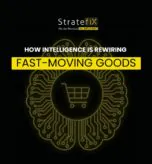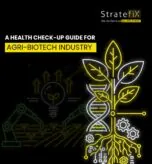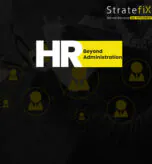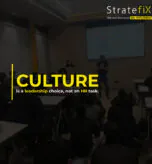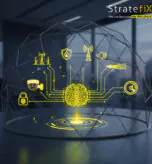Setting up a new plant from the ground up is no small feat, especially for a sustainable project like recycled polyester initiative. Stratefix helped them transform this ambitious concept into a thriving business through careful planning, operational efficiency, and sustainable practices.
The Indian polyester staple fiber market is projected to reach a staggering USD 2.2 billion by 2029, with a significant portion driven by the growing demand for sustainable solutions. Furthermore, the recycled PET (r-PET) bottle market in India is expected to reach USD 17.53 billion by 2030, fueled by environmental consciousness and government initiatives.
Our client, based in Surat, Gujarat, embarked on an ambitious journey to establish a new manufacturing plant dedicated to producing recycled polyester staple fibre (r-PET) from discarded PET bottles.
This innovative project aimed to provide the textile industry with a sustainable alternative to virgin polyester, aligned with global efforts to reduce plastic waste. However, building a fully operational plant from scratch required comprehensive planning, infrastructure development, and operational systems. The client partnered with Stratefix Consulting, a trusted advisor with expertise in greenfield projects, to transform this vision into reality.
This case study highlights Stratefix’s pivotal role in guiding the client from concept to a sustainable, fully operational plant. Through strategic planning, workforce management, technological integration, and on-ground execution, Stratefix helped the management establish a robust foundation for growth, demonstrating the importance of expertise and structured processes in greenfield projects.
Project Challenges: From Vision to Reality
Setting up a greenfield project like Recycled Polyester segment to become a Leader in the industry required overcoming multiple challenges:
- Developing New Systems and Processes: With no prior infrastructure or operations in place, the project required establishing all foundational processes, ensuring alignment with industry standards.
- Building an Efficient Workforce: Hiring, training, and aligning employees with the company’s mission presented a considerable challenge in a new, rapidly growing sector.
- Implementing Integrated Technology: To maintain quality, manage operations, and support growth, an ERP (Enterprise Resource Planning) system was essential, yet finding the right fit for a new venture posed challenges.
Stratefix approached these challenges with a multi-phase strategy, addressing each aspect of plant establishment and operations.
Stratefix’s Strategic Approach to Implementing the Greenfield Project
Stratefix structured its approach to the greenfield project in phases, each crucial to establishing a successful and sustainable r-PET manufacturing plant.
Phase 1: Strategic Validation and Planning
- Market Validation and Feasibility Assessment: Stratefix initiated the project by conducting a market feasibility study to validate the demand for r-PET fibre in the Indian market, considering rising environmental awareness and supportive government policies. This study underscored the business viability and outlined potential challenges and competitive dynamics within the recycled polyester industry.
- Setting Objectives and Milestones: Once feasibility was established, Stratefix worked with the client to set clear objectives, defining milestones for plant construction, equipment setup, workforce hiring, and operational targets. This blueprint was essential for monitoring progress and ensuring alignment with long-term goals.
- Site Selection and Layout Design: Selecting the right location was critical to the project’s success. Stratefix identified an appropriate site in Surat, evaluating factors like logistical connectivity, resource availability, and cost. The consulting team then devised a detailed floor plan to optimise production flow and space utilisation, supporting both inward and outward inventory management.
Phase 2: Building Operational Foundations
- Standard Operating Procedures (SOPs): Stratefix developed comprehensive SOPs covering every aspect of operations, from raw material procurement to final product quality checks. These SOPs were instrumental in standardising processes, reducing potential errors, and ensuring product consistency, which is crucial in manufacturing.
- Inventory Management: Efficient inventory management was established to streamline the flow of raw materials and finished products. Stratefix implemented a robust system that improved inventory accuracy, optimised storage capacity, and enhanced visibility across different stages of production. This system contributed significantly to reducing operational costs and maintaining cash flow.
- Production Capacity Planning: Understanding the demand and forecasting requirements, Stratefix created a capacity plan to ensure the plant could meet production targets without overextending resources. This planning also helped establish flexible production scheduling to adjust for market demand fluctuations.
Phase 3: Workforce Development and HR Infrastructure
- HR Strategy and Organisation Structure: To support a greenfield project, an efficient HR strategy is vital. Stratefix structured a full HR team, responsible for setting up company policies, recruitment, and manpower planning. They outlined a comprehensive organisation structure with well-defined roles to support both operational and administrative functions.
- Job Descriptions, KRAs, and KPIs: For effective workforce management, Stratefix developed clear job descriptions, Key Result Areas (KRAs), and Key Performance Indicators (KPIs) for each role. This clarity helped employees understand their responsibilities, facilitated goal setting, and fostered a culture of accountability across all levels.
- Sourcing and Training: Stratefix conducted a thorough recruitment process to ensure that employees aligned with client’s sustainability goals and operational demands. The new hires underwent rigorous training in quality control, production processes, and compliance standards, ensuring they were equipped to contribute effectively from day one.
Phase 4: Technological Integration and ERP Implementation
- ERP System Selection and Implementation: Recognising the importance of technology in manufacturing, Stratefix identified a suitable ERP solution that could centralise client’s operations across finance, human resources, manufacturing, and supply chain. The ERP system improved data security, standardised data, and facilitated compliance, ensuring that the client maintained operational transparency.
- Human Resource Management System (HRMS): To streamline HR functions, Stratefix implemented an HRMS that simplified payroll, attendance, and employee data management. This system also enabled efficient communication and reporting, which was critical for managing a large and diverse workforce.
- Data-Driven Decision Making: Regular internal audits and data assessments, facilitated by the ERP, helped identify areas for improvement in real time. This data-driven approach allowed the management to make informed business decisions, optimise resource allocation, and reduce risks associated with system failures or compliance gaps.
Phase 5: Quality Control and Risk Management
- Quality Assurance Framework: Stratefix set up a rigorous quality assurance framework to maintain high production standards. This included implementing quality checks at each stage of the production process, from raw material intake to final packaging, ensuring that products met industry standards.
- Risk Assessment and Mitigation: Stratefix conducted a thorough risk analysis, identifying potential operational risks, such as human error and equipment breakdown. Proactive policies and preventive measures were introduced, including emergency protocols, periodic equipment maintenance, and workforce training for rapid response.
- Sustainability and Compliance: Given client’s commitment to sustainability, Stratefix ensured all operations adhered to environmental regulations and implemented waste management practices. The consulting team also advised on future-proofing the plant by anticipating regulatory changes and adopting practices that reduced the environmental footprint.
How to build a Fully Operational and Sustainable Manufacturing Plant?
Stratefix’s consulting intervention resulted in significant achievements for the client:
- Efficient Production Processes: With streamlined workflows, robust SOPs, and a well-trained workforce, the plant achieved high operational efficiency, which was instrumental in maintaining product quality and meeting market demands.
- Reduced Operational Costs: Through optimised inventory management, ERP integration, and resource planning, the plant saw substantial cost savings. These efficiencies enabled the client to invest more in growth and innovation.
- Empowered Workforce: With a strong HR infrastructure and well-defined roles, employees were motivated and aligned with company’s goals. Performance metrics fostered a culture of continuous improvement and accountability.
- Market Readiness: By setting up a solid foundation and adopting data-driven practices, the client positioned itself as a reliable player in the recycled textile fibre market. The company is now well-prepared to expand its market presence and support India’s shift towards sustainable textile solutions.
The Importance of a Greenfield Project Partner
Our client’s successful plant establishment underscores the value of having an experienced consulting partner for greenfield projects. Stratefix’s comprehensive approach—covering planning, workforce development, technology integration, and risk management—transformed an ambitious idea into a profitable, sustainable enterprise. This journey demonstrates how a well-executed greenfield project can enable businesses to contribute to industry innovation while supporting environmental goals.
Stratefix’s role in this project highlights the significance of a growth partner who understands both the strategic and operational aspects of building new ventures. From validating business viability to ensuring operational sustainability, Stratefix Consulting has proven expertise in helping clients transform vision into reality in greenfield projects.
Contact us today to find out how we can help you achieve excellence.


